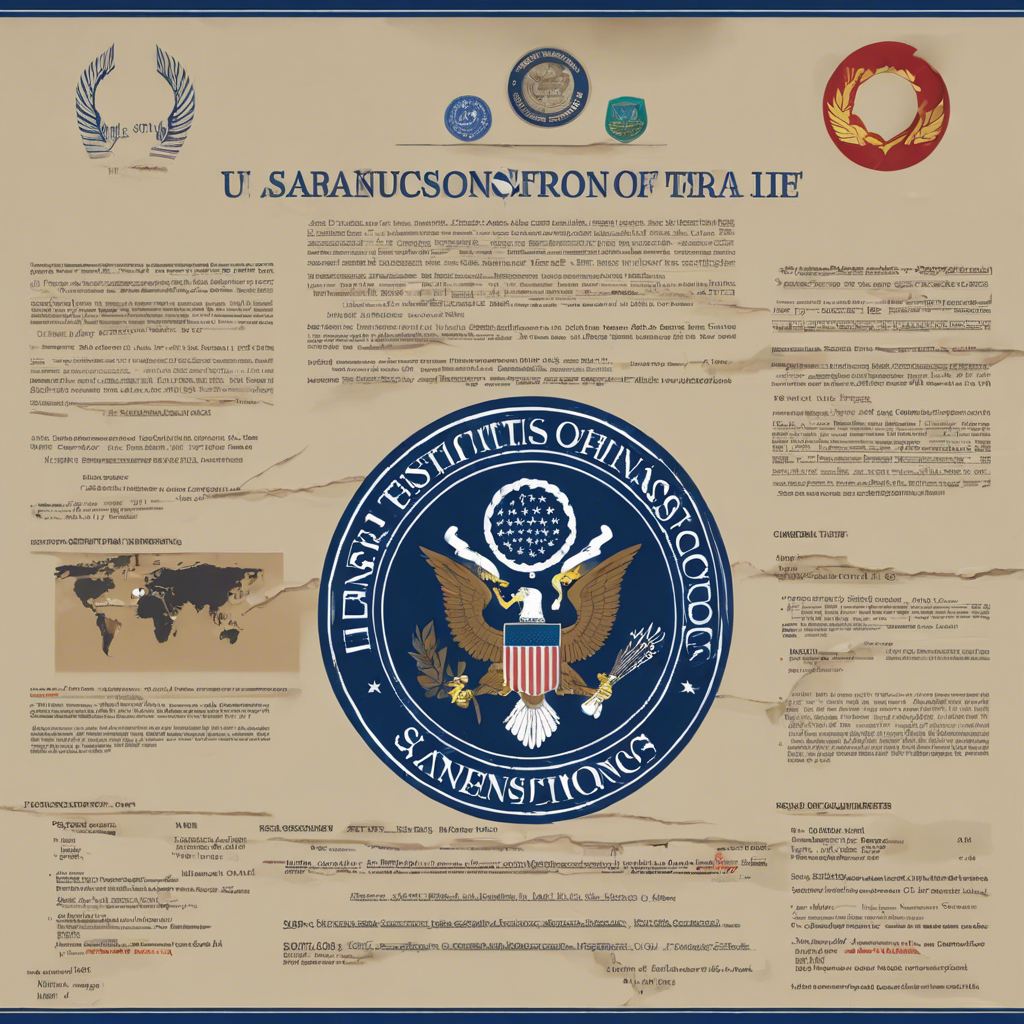U.S. Removes China’s Institute of Forensic Science from Trade Sanctions List to Enhance Counternarcotics Cooperation

Advancing Collaboration to Combat Fentanyl Trafficking Amid Human Rights Concerns
In a move that has sparked both praise and controversy, the United States has recently removed China’s Institute of Forensic Science from a trade sanctions list. This decision, made in the pursuit of counternarcotics cooperation, comes despite ongoing concerns over China’s human rights practices. By forging closer ties with the Institute, the U.S. aims to combat the alarming trafficking of fentanyl and related chemicals into the country. This article delves into the implications of this decision, exploring the potential benefits and ethical considerations that surround this collaboration.
1: The Fentanyl Crisis and the Role of China
The fentanyl crisis has emerged as a grave public health concern in the United States. This synthetic opioid, which is significantly more potent than heroin, has been responsible for a staggering number of overdose deaths. China, as a major producer and exporter of fentanyl and its analogs, has often been implicated in the supply chain of this deadly substance. With the removal of the Institute of Forensic Science from the trade sanctions list, the U.S. hopes to leverage China’s expertise in combating this crisis.
2: Strengthening Counternarcotics Cooperation
The decision to remove the Institute of Forensic Science from the trade sanctions list is a strategic move to enhance counternarcotics cooperation between the U.S. and China. By working closely with China’s leading forensic institution, the U.S. aims to access valuable intelligence and scientific expertise to disrupt the production and distribution networks of fentanyl. This collaboration has the potential to yield significant breakthroughs in tracking and apprehending those involved in the illicit trade.
3: Human Rights Concerns and Ethical Considerations
While counternarcotics cooperation is a crucial objective, the decision to remove the Institute of Forensic Science from the trade sanctions list has raised concerns over China’s human rights practices. The Chinese government has been widely criticized for its treatment of ethnic minorities, suppression of dissent, and lack of transparency in its legal system. Critics argue that this collaboration may inadvertently legitimize and lend credibility to an institution operating within a problematic human rights framework.
4: Balancing Objectives: The Need for Transparency and Accountability
As the U.S. engages in counternarcotics cooperation with China, it is imperative to strike a delicate balance between achieving the desired outcomes and upholding human rights standards. Transparency and accountability should be at the forefront of this collaboration, ensuring that the Institute of Forensic Science operates within internationally accepted norms. By actively monitoring and addressing human rights concerns, the U.S. can mitigate potential risks and uphold its commitment to promoting human dignity.
5: The Global Impact of Counternarcotics Collaboration
The fentanyl crisis transcends national borders, making international cooperation essential in combatting its devastating effects. By working together, the U.S. and China can set a precedent for global counternarcotics efforts. This collaboration has the potential to inspire other nations to join forces in addressing the supply chain of illicit drugs, fostering a united front against drug trafficking and related criminal activities.
Conclusion:
The decision to remove China’s Institute of Forensic Science from the trade sanctions list marks a significant step towards counternarcotics cooperation between the U.S. and China. As both nations grapple with the fentanyl crisis, this collaboration holds the promise of disrupting the illicit supply chain and saving countless lives. However, it is crucial to navigate this partnership with caution, ensuring that human rights concerns are addressed and transparency is maintained. By striking the right balance, the U.S. and China can set an example for global counternarcotics efforts, demonstrating the power of collaboration in tackling complex transnational challenges.

